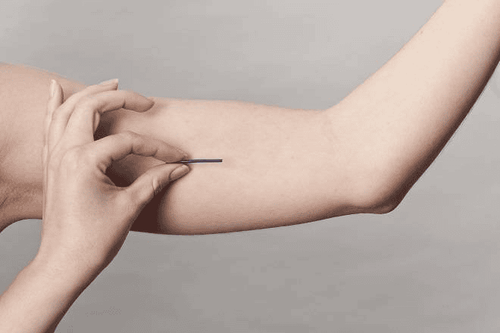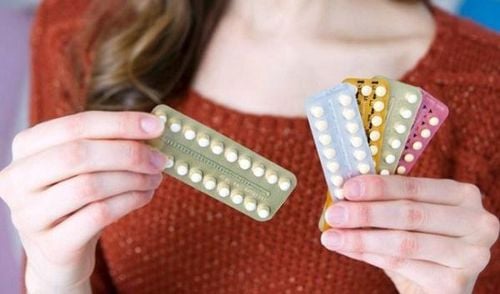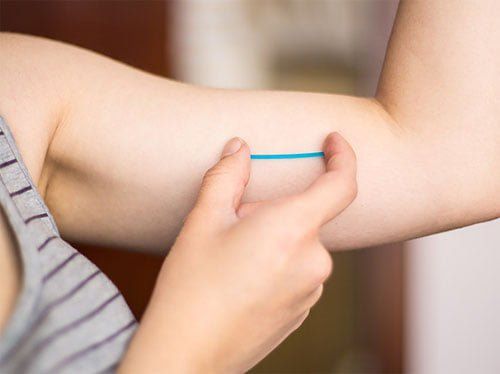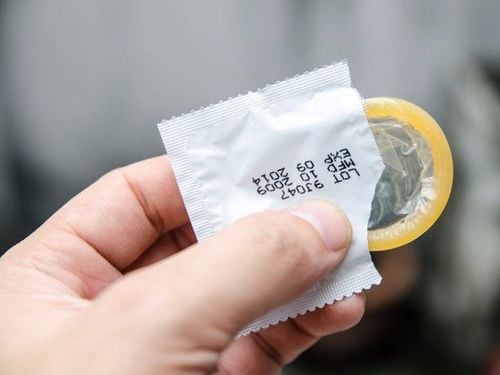This is an automatically translated article.
The article was professionally consulted by MSc, Dr. Trinh Thi Thanh Huyen - Obstetrician and Gynecologist - Department of Obstetrics and Gynecology - Vinmec Hai Phong International General HospitalLust for sex after pregnancy is natural for all couples. However, the feeling of having sex after giving birth can be different, you may have pain and not get pleasure. Each person will have different experiences when having sex after giving birth, pay attention to the body's response to make the best adjustments and choices for yourself.
1. When can you have sex after giving birth?
Although there is no exact time when you can have sex again, the advice of health care providers is that you should have sex after giving birth after six weeks, regardless what type of delivery you've had, as the risk of postpartum complications is highest in the first two weeks after giving birth. During this time, the body needs to heal. It is not only because your body may have postpartum discharge, vaginal tear, perineum during childbirth, but also because right after giving birth, your body may also experience fatigue, vaginal dryness. , pain and sexual desires will not be much. In the case of a vaginal tear, it needs to be repaired surgically and the time it is safe to have sex can be longer.2. Is sex after giving birth painful?
Hormonal changes can make the vagina dry and tender, especially during breastfeeding. You may experience pain during sex if the episiotomy is healing or the pain is caused by an episiotomy. To reduce discomfort during sex, you can relieve pain by emptying your bladder, taking a warm bath, or taking an over-the-counter pain reliever. If you feel a burning sensation afterward, apply ice wrapped in a small towel to the area. You may also consider using a lubricant during sex if you have vaginal dryness. Or you can try other forms of non-vaginal intercourse, such as massage, oral sex, or mutual masturbation. Be open and honest with your partner about how you feel during sex and what you don't like about sex.Make time for sex when you're not too tired or nervous. If sex continues to be painful, consult your health care provider for options that are right for your body.

Nếu quan hệ tình dục tiếp tục gây đau đớn hãy tham khảo ý kiến của bác sĩ
3. Will the feeling of sex after giving birth change compared to before?
The answer is yes, because pregnancy, labor and delivery can damage the pelvic floor muscles, uterus, bladder, small intestine, and rectum. To tone your pelvic floor muscles, try Kegel exercises by imagining you're sitting on a marble and squeezing your pelvic muscles as if you were lifting a marble. Try it for three seconds at a time, then relax for 3 counts. Do the exercise 10 to 15 times in a row, at least three times a day.4. Contraception when having sex after giving birth
Having sex after having a baby requires a reliable method of birth control. If you've had sex less than six months postpartum, while you're breastfeeding, and haven't had your period at all, breastfeeding can provide about 98% protection from pregnancy. However, research shows that the contraceptive effectiveness of breastfeeding varies from person to person.To reduce your risk of pregnancy complications and other health problems, you should wait at least 18 to 24 months before trying your next pregnancy. Your health care provider may be able to advise you on when to think about when to have your next baby.
Contraception options you might consider include: Contraceptive implants, such as etonogestrel (Nexplanon) Copper or hormonal intrauterine devices (IUDs) Progestin-only birth control pills, such as injectable medroxyprogesterone (Depo-Provera) or norethindrone minipill (Camila, Ortho Micronor, others) Birth control methods that contain both estrogen and progestin, such as the combined oral contraceptive pill, can increase the risk of clots forming blood clots shortly after birth. For healthy women, combined oral contraceptives and other types of combined hormonal birth control can be started one month after childbirth. Although birth control methods that contain both estrogen and progestin have long been shown to decrease a nursing woman's milk supply, recent research suggests this is not true. Talk to your healthcare provider during your postpartum visits about birth control options.

Có nhiều biện pháp tránh thai khi quan hệ tình dục sau khi sinh con
5. Solution when there is no sexual desire
There's more to your attraction than sex, especially as you're adjusting to your new life with a baby in your life. If you are not interested or you feel afraid because sex will hurt your body. You absolutely can and should talk to your partner. Have sex only when you're really ready, and in the meantime, maintain intimacy in other ways. You should spend time together without the baby, even if it's just for a few minutes in the morning and after the baby goes to bed. Or find other ways to show your love.Be on the lookout for signs and symptoms of postpartum depression, such as severe mood swings, loss of appetite, fatigue and lack of joy in life. If you think you're at risk for postpartum depression, contact your health care provider to get prompt treatment and speed recovery. Remember, taking good care of yourself can help you stay passionate in the long run.
Postpartum relationships should usually only be thought of when both feel ready and completely comfortable. At the same time, both need to openly share and help each other at all times to rekindle the inherent strong harmony that has been somewhat diminished through the time of pregnancy and childbirth.
If you have a need for consultation and examination at the Hospitals of the National Health System, please book an appointment on the website for the best service.
Please dial HOTLINE for more information or register for an appointment HERE. Download MyVinmec app to make appointments faster and to manage your bookings easily.
Reference source: mayoclinic.org










